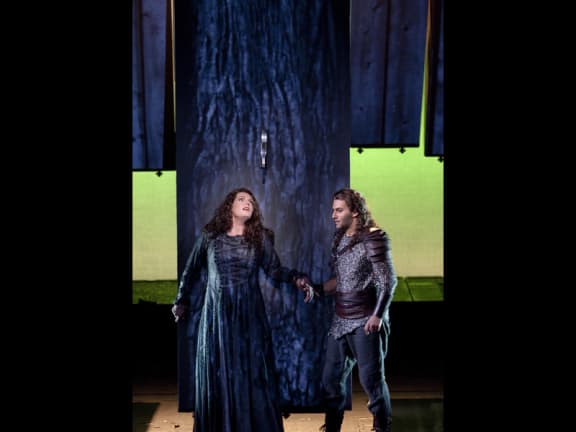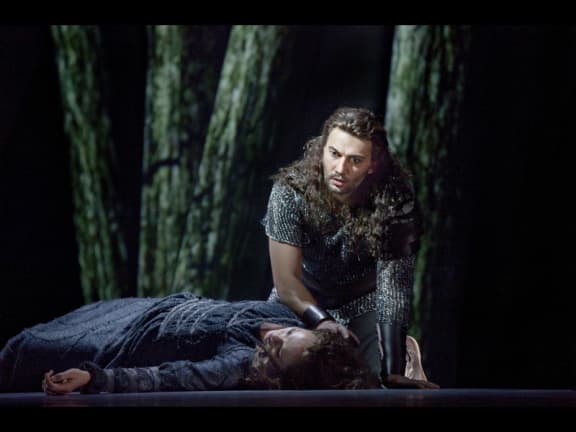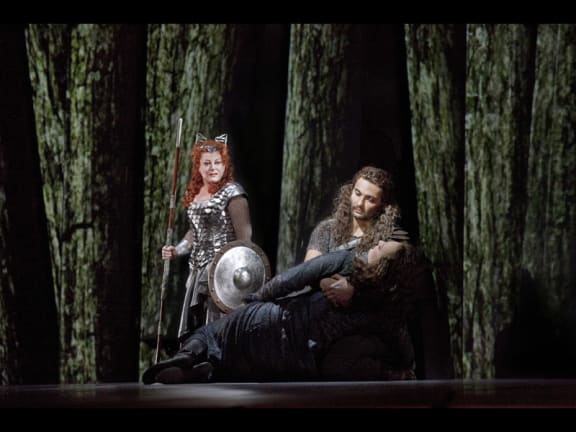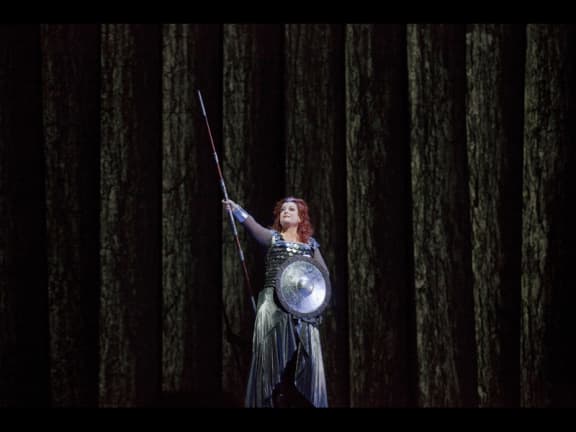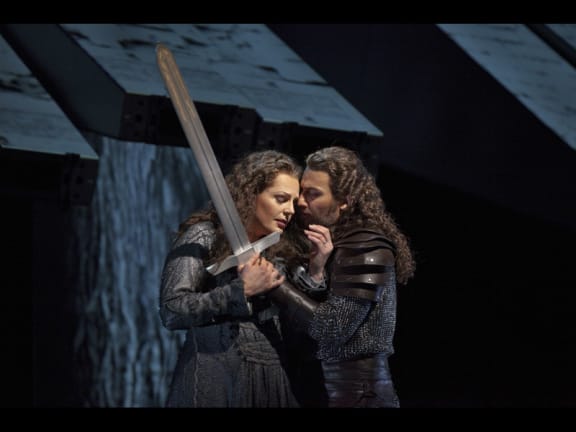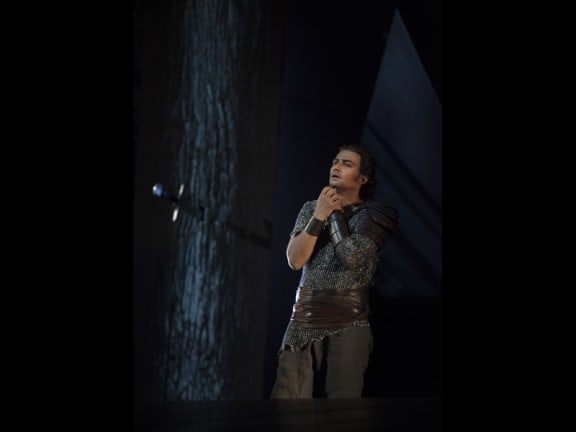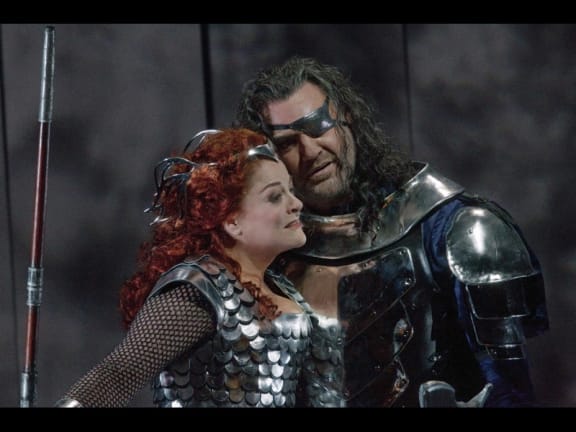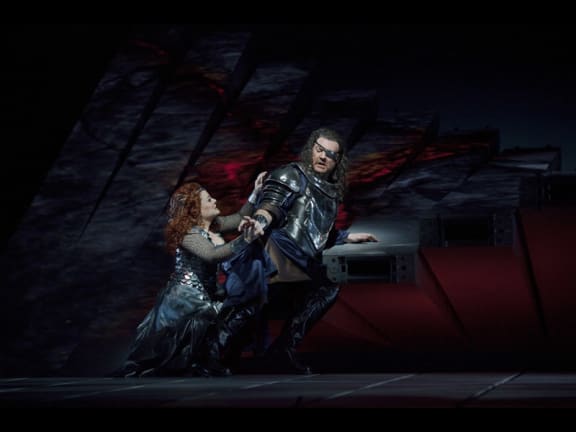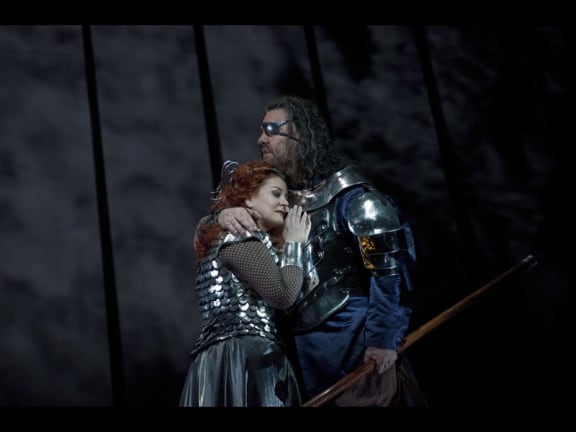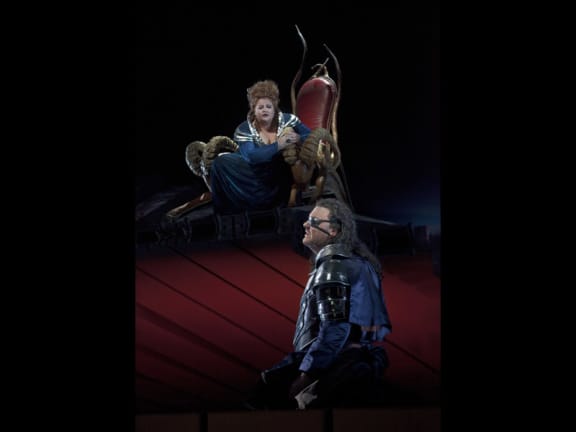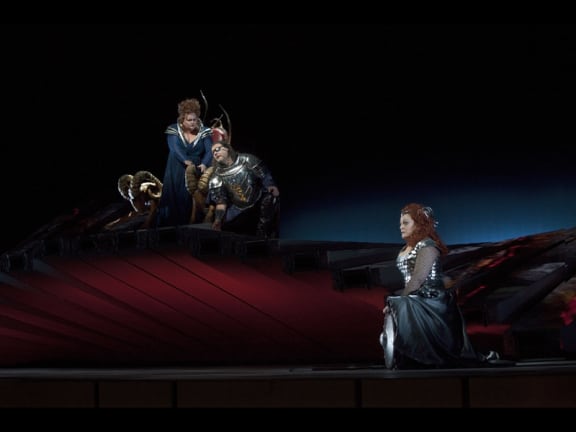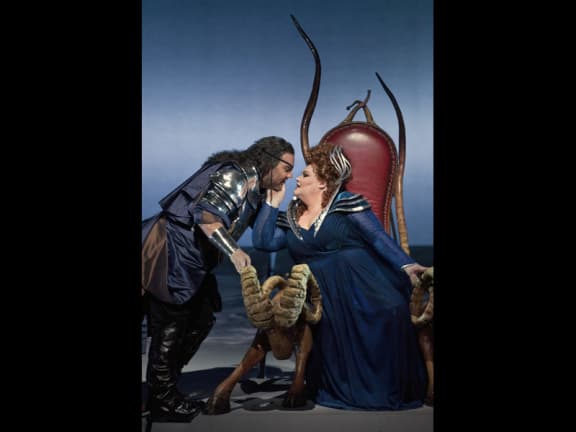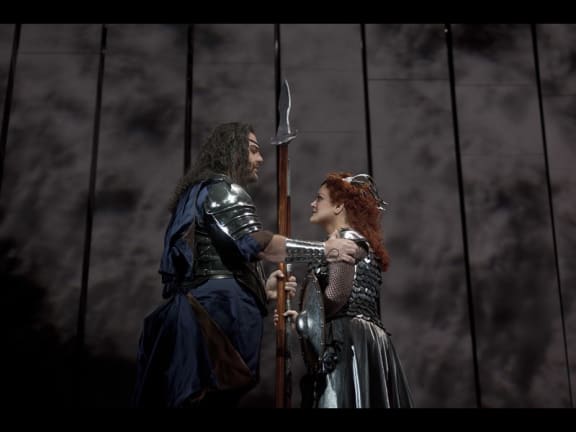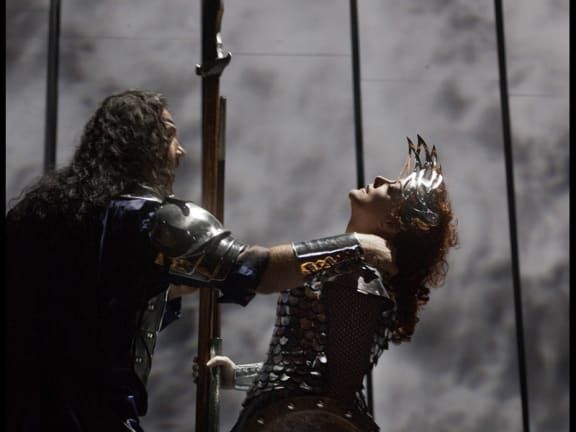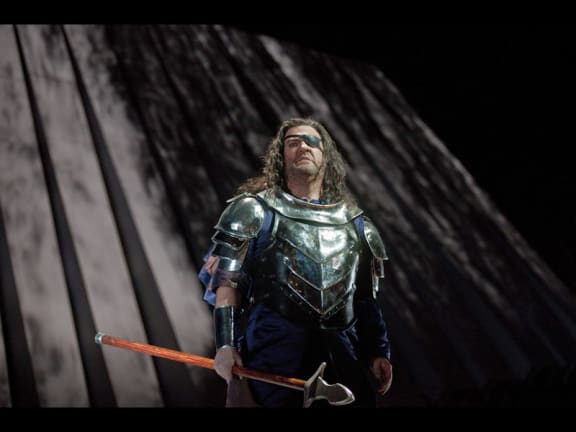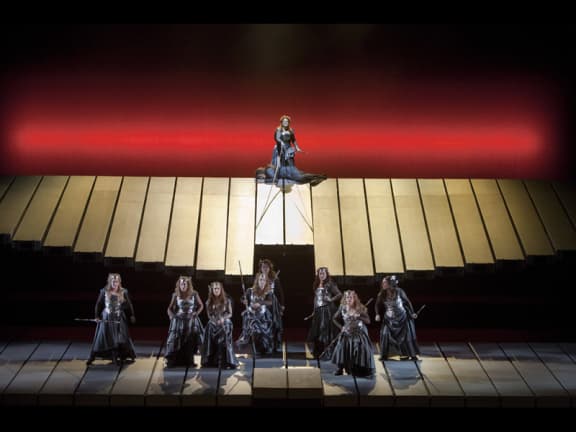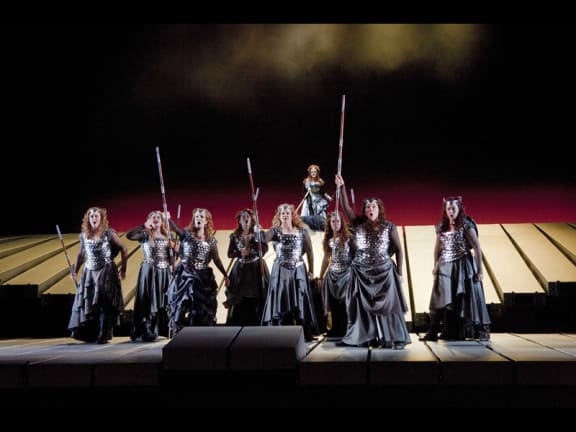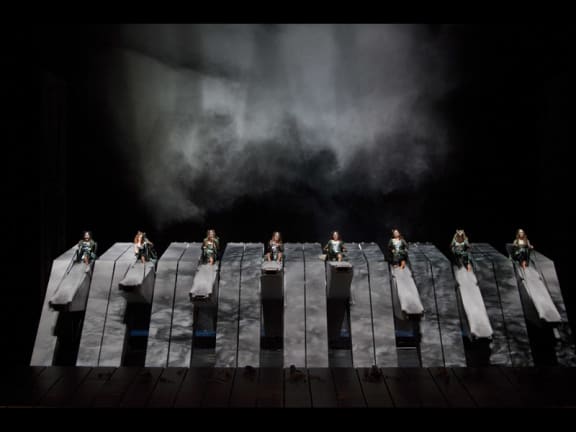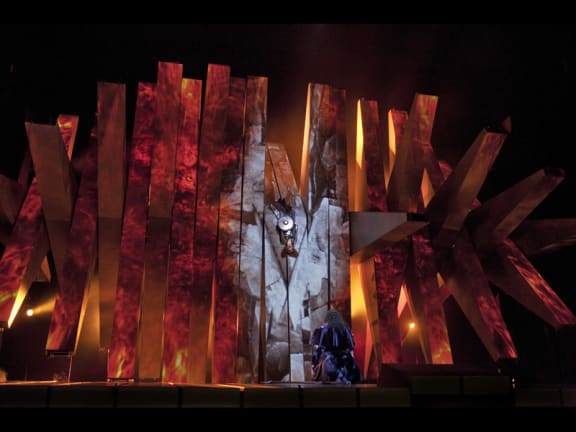Paul Bushnell goes backstage at the New York Metropolitan Opera.
Metropolitan Opera production of Die Walkure in New York
At Easter 2011, Paul Bushnell saw the opening night of the production Die Walküre for a two-part documentary series he created for Radio New Zealand Concert. Backstage at the Met aims to give listeners a sense of what it’s like behind the scenes at one of the world’s great cultural institutions.
In part one, Paul Bushnell goes through the stage door at New York's Metropolitan Opera to find out how it works. His backstage interviews feature a wide range of the key people who get the productions onstage and make it run, including the General Manager Peter Gelb. The talk is interwoven with music from several Met productions, including the opening of the controversial new Ring Cycle directed by Robert Lepage.
Technology is the focus of the final of Paul Bushnell's exploration of how New York's Metropolitan Opera works. His backstage interviews touch on radio - including an interview with Margaret Juntwait, the entertaining host of the Saturday matinee broadcasts - but focus on the new highly-successful Live in HD relay which transmits those performances to a global audience of hundreds of thousands of viewers. The singer Renée Fleming also talks about her role as a TV host in a programme which surveys the première of Die Walküre, the second instalment in the new Ring Cycle which premièred at the Met at Easter.
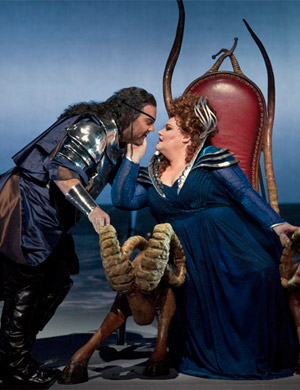 Putting on Richard Wagner’s cycle of epic-scale operas is quite an achievement for any company, but the Met’s new series promises to be a landmark. With a huge, very expensive set (so heavy that the floor of the opera house had to be strengthened to accommodate it) serving for every production, and striking use of digital projections, the production has drawn fire from conservative critics.
Putting on Richard Wagner’s cycle of epic-scale operas is quite an achievement for any company, but the Met’s new series promises to be a landmark. With a huge, very expensive set (so heavy that the floor of the opera house had to be strengthened to accommodate it) serving for every production, and striking use of digital projections, the production has drawn fire from conservative critics.
“The sheer scale of the place is extraordinary,” he comments. “I had a great tour of the building and got the impression of it being an opera factory as well as a theatre. The commitment to detail’s amazing, from the most subtle details of costuming to how they develop a close relationship with the patrons who contribute nearly half of the organisation’s annual operating budget of NZD$300 million.”
A host of interviews with staff, ranging down from the General Manager Peter Gelb, has resulted in nearly six hours of audio to be condensed into two hour-long shows. Among the highlights? “Margaret Juntwait, who’s the host of the radio broadcasts relayed by Concert – a wonderful, larger-than-life personality who’s both funny and informative about her work. Sarah Billinghurst, the Kiwi at the head of the artistic administration, provided some great insights into the day-to-day business of looking after casting, singers, and programming for up to a decade ahead.” He adds “It was pretty special to interview the leading soprano Renee Fleming, too.”
And surprises? “The Met takes its audience development role very seriously. It runs a great, generous system of rush tickets, sold at only $20 each on the day for the first 200 people to turn up to each performance. These are bought by a board member and released at giveaway prices even if the production’s completely sold out – in fact this was the only way I could get to see Die Walküre for a second time – and they’re deservedly popular.”
“Even though I had known before about the Live in HD broadcasts, in which the Met’s Saturday afternoon matinee is relayed live by satellite to cinemas all over the world, I was amazed at how much care is lavished on these events. The Met’s general manager sits in the broadcast truck working with the TV director, and their aim is to give to live opera a sense of the immediacy and energy typical of live sportscasting. Based on the delayed Live in HD screenings I’ve seen at the movies in New Zealand, this approach has clearly paid off.”
